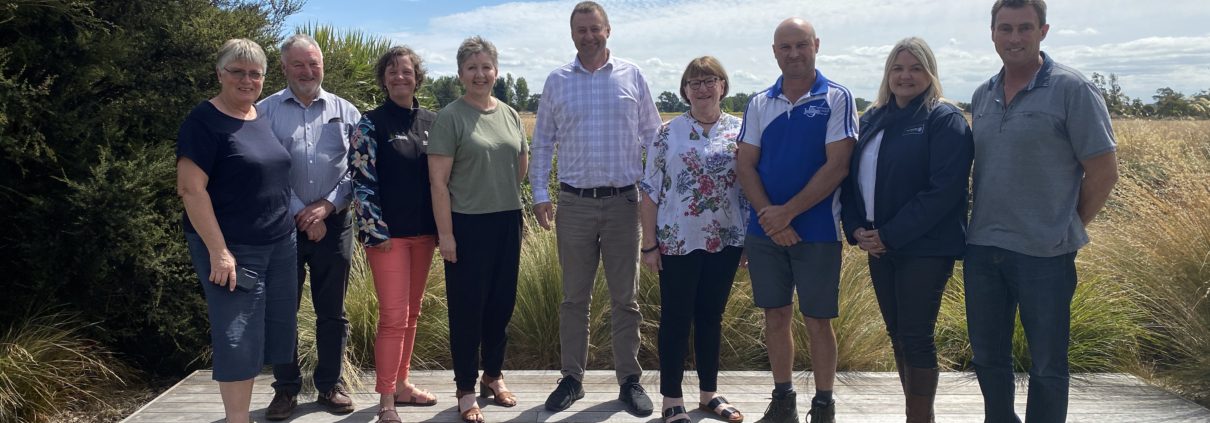ESAI Committee meets with Minister Patterson
ESAI Committee members met with Minister for Rural Communities and Associate Minister of Agriculture Mark Patterson this week as he toured Canterbury meeting various farming and community groups, farmers and council staff. Val McMillan, Nigel Greenwood, Jo Fearn and Carey & Alastair Barnett from ESAI attended the meeting with the Minister along with representatives from the Ministry for Primary Industries (MPI) which took place at the Lakeside Soldiers Memorial Hall near Leeston on Monday 12th February 2024.
Mr Patterson, who was previously Chairperson of Federated Farmers Otago and also farms sheep and beef in Lawrence, has been a farmer for over 30 years making him ideally suited to his roles within government. Carey and Nigel gave a brief overview of the work that ESAI have been undertaking over the last three years and the achievements that have been gained. The work was made possible with funding from MPI through its Sustainable Land Use Extension Service programme and Jobs for Nature.
The ESAI Committee members expressed their concerns to the Minister over some of the proposed regulations around freshwater and how they could lead to further frustration amongst farmers in the area and reduce farm business flexibility. This is especially the case when most Canterbury farmers already have Farm Environment Plans and are making tangible changes to their farming
systems to reduce impacts on the environment and freshwater.
Another concern signalled to the Minister was regarding water allocation and farming activity resource consents. Highlighted was the need for more flexibility to aid changes in farming systems in order to ensure adaptive and resilient responses to climate change and market demands in the future.
Mr Patterson was impressed by the outcomes ESAI and its members have achieved and how farmers in the area have made big changes in their attitudes and understanding of farming practices. He was also encouraged to hear how ESAI is starting to work with other catchments and groups to build connections throughout the region. He told us, ESAI is a great example group, a pioneer group for others to follow.
The Minister asked what the focus for funding should be going forward and how funding could best support catchment groups like ESAI. The Committee members were in agreement that a prime focus should be on providing funding for support staff. If catchment groups rely totally on volunteer time and effort then work slows considerably as farmers generally do not have sufficient time to commit to organising and coordinating group activities. Nor can they fully participate in meeting the demands of significant but important consultation and input into new policy and regulation development.
The meeting closed with Minister Patterson recognising a relative as one of the memorial photos of soldiers that adorn the walls at the Lakeside Hall, another indication of just how connected he is with the local area and how important rural communities are in New Zealand society and agriculture.




